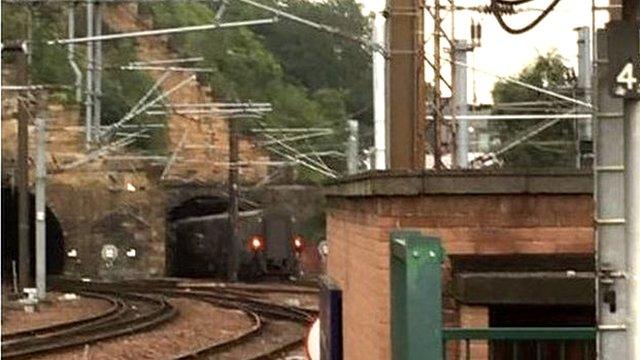Serco agrees Caledonian Sleeper improvement plan
- Published
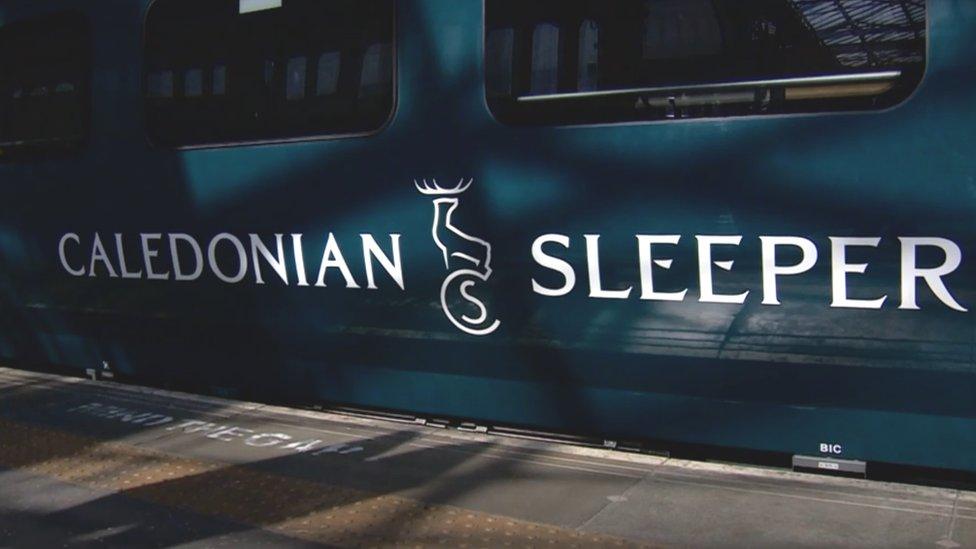
The Caledonian Sleeper operates between London and Scotland
Operators of the Caledonian Sleeper have admitted its service has been "unsatisfactory" following a "number of issues".
The acknowledgement comes after the service between London and Scotland was hit by strike action, technical faults and the late delivery of new trains.
Serco Caledonian Sleepers Ltd said an improvement plan was now in place.
Between mid September and 12 October only 63% of services between London and Edinburgh were on time.
For Sleeper services between Fort William, Aberdeen and Inverness to London, the figure was 72.% over the same period - although overall, 80% of trains were on time.

What has been going wrong with the Caledonian Sleeper?
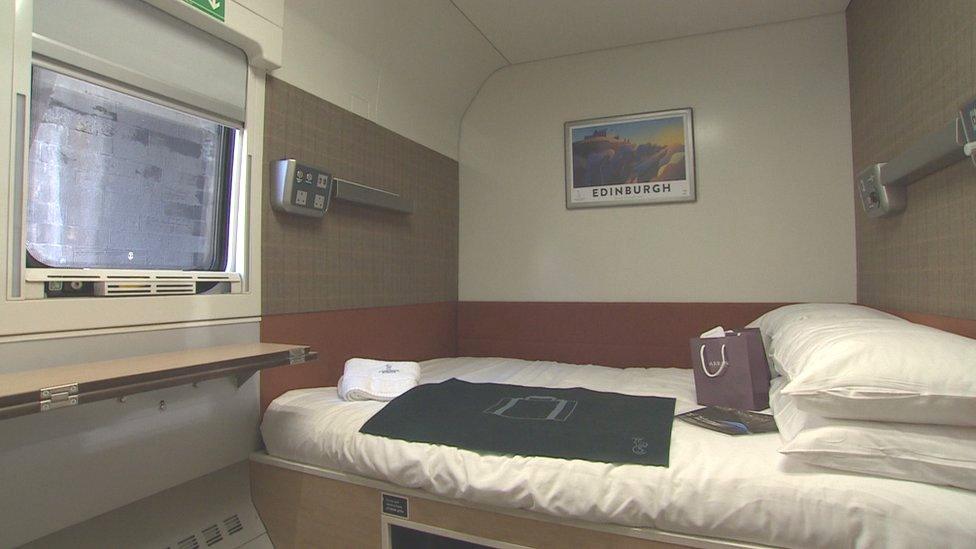
The en-suite double rooms were said to be a "first" for the Sleeper
At its launch in June the revamped Caledonian Sleeper service was described as a "hotel on wheels".
The £150m fleet consists of 75 carriages with en-suite double rooms.
But the service has been beset by a string of problems.
In June, a technical problem - believed to be the application of emergency brakes - saw passengers stuck at Stafford and forced to complete their journey by bus.
Damage caused to wheels in that incident led to several days of cancellations and delays.
Two weeks later, a rescue train was sent to collect passengers stranded in the Highlands after a service from Fort William broke down.
In August, a Caledonian Sleeper train overshot Edinburgh Waverley station, only coming to a halt after emergency brakes were applied.
At the end of September staff took part in a 48-hour walkout over stress and workloads leading to multiple cancellations.
Operator Serco introduced new trains on its Caledonian sleeper routes between Inverness, Aberdeen, Fort William and London in October, more than a year behind schedule..

The improvement plan will attempt to address delays caused by the coupling and decoupling of trains at Carstairs and Edinburgh Waverley.
Trains travelling from Aberdeen, Inverness and Fort William are joined or split at Waverley while those from Glasgow and Edinburgh undergo the same process at Carstairs.
'Key root causes'
Serco Caledonian Sleepers Ltd (SCSL) said improvements would also be made to the reliability of electric and diesel locomotives, depot and station operations and communication with infrastructure operator Network Rail.
In a letter to Transport Scotland SCSL said that it was "with regret" that they recognised "a number of issues have contributed to a decline in right time arrival performance of the service."
They added that they had "proactively taken a number of steps to identify the key root causes to recent challenges".
The Scottish Transport Secretary Michael Matheson said Caledonian Sleeper's performance had fallen below the levels expected by passengers and ministers alike.
He added: "This has been caused by a number of internal and external factors, which are being addressed by Caledonian Sleeper and its industry partners CAF, GB Railfreight and Network Rail."
Mr Matheson added that the Scottish government continued to call for full powers over rail to be devolved to Scotland so they could "run the railways with passengers interests at the forefront of planning and delivery".
- Published24 July 2019
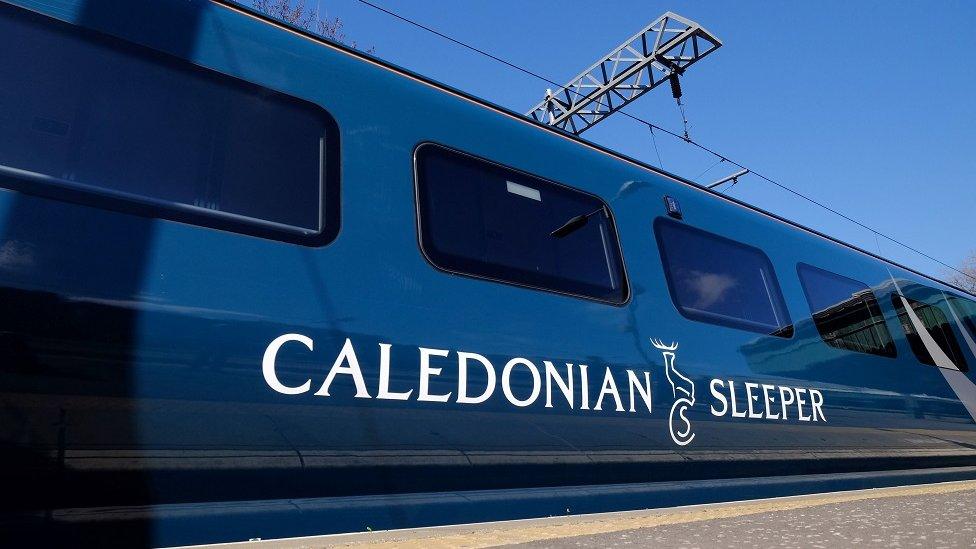
- Published26 June 2019
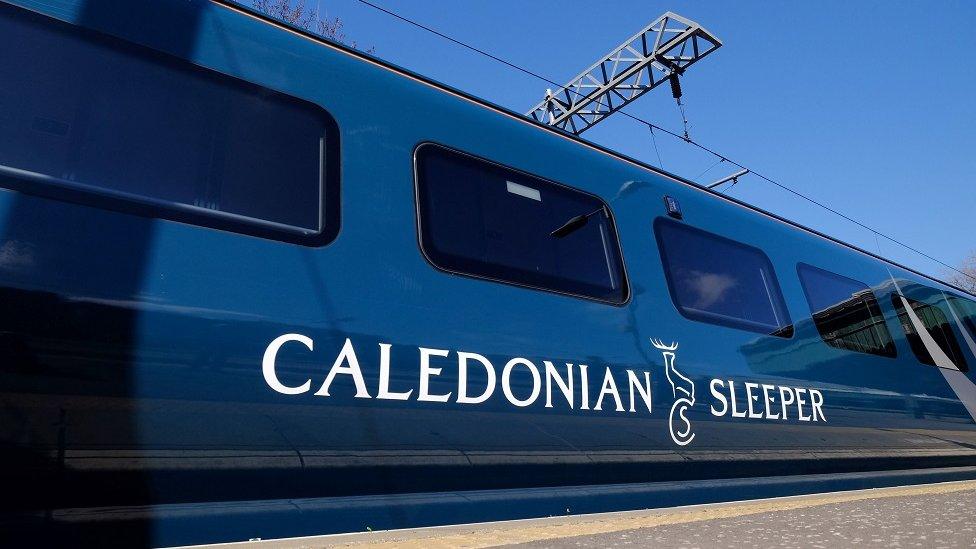
- Published12 August 2019
